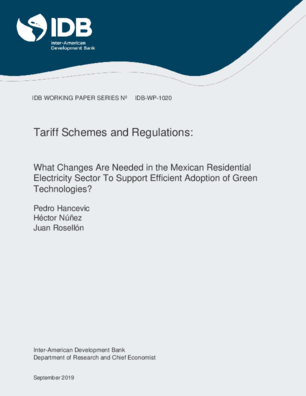Tariff Schemes and Regulations: What Changes are Needed in the Mexican Residential Electricity Sector to Support Efficient Adoption of Green Technologies?
Date
Sep 2019
The efficient deployment of green technologies, and more generally, the clean energy transition, will require electricity tariff reforms. Existing tariff schemes often fail to achieve basic economic objectives. They set prices per unit that either exceed or fall short of the social marginal cost, they produce unfair distributional outcomes, and they do not favor efficient adoption of green technologies or investment in energy efficiency. In many cases, they also contribute to unsustainable fiscal deficits due to (almost) generalized electricity subsidies. Using household data from Mexico, this paper shows how efficient pricing mechanisms (such as a two-part tariff scheme in the context of efficient nodal price systems), combined with well-designed environmental regulations (e.g., net-metering schemes) and correctly targeted transfer programs (e.g., means testing mechanisms) can improve economic, social, and environmental outcomes significantly, all at once.



